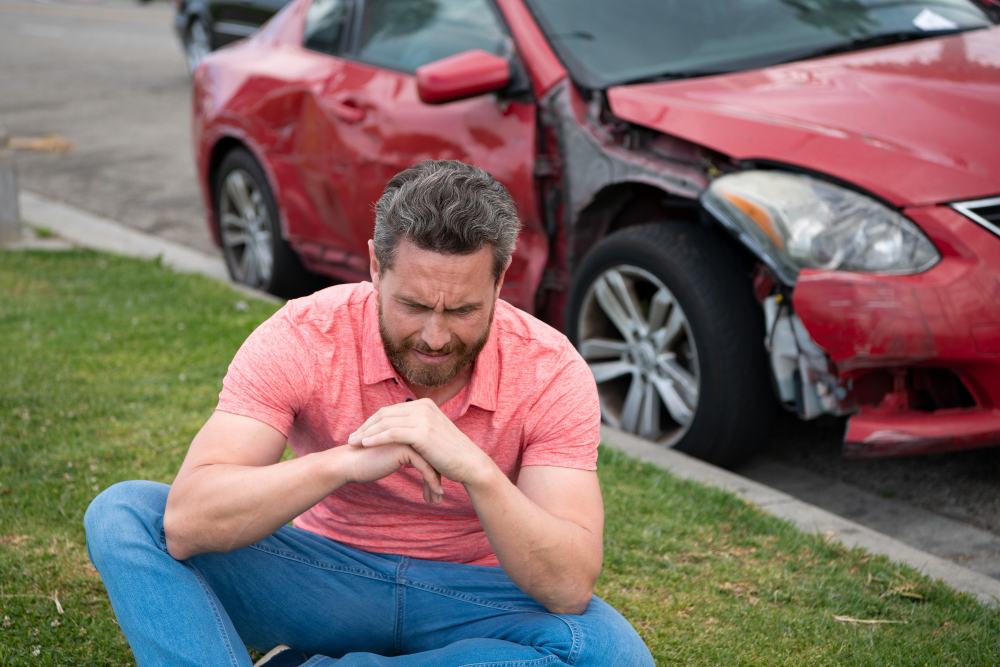
Accidents, whether it's a car mishap, slip and fall, or any other type of personal injury incident, can happen unexpectedly and leave you feeling overwhelmed. Knowing how to navigate the aftermath of an accident is crucial to protect yourself and your rights. This comprehensive guide will walk you through the essential steps you need to take after experiencing a personal injury to safeguard your interests.
Ensuring the safety and well-being of yourself and others involved should be your first priority after an accident. Here are the initial steps to assess and manage the situation effectively:
In the aftermath of an accident, take a moment to breathe deeply and try to stay calm. Check for any visible injuries on yourself and others. If you discover serious injuries, immediately call 911 and wait for emergency medical treatment to arrive. It's crucial to avoid moving if you suspect a serious injury, to prevent further harm.
If it's safe, move to the side of the road or another safe area away from traffic after an accident. This precaution helps prevent additional accidents and ensures the safety of everyone involved.
It's important to contact the police even after minor accidents. They'll document the incident and create an official report, which becomes crucial for insurance claims and any legal proceedings that may follow. When you call, provide your location, a brief overview of the accident, and report any injuries.
While waiting for the police to arrive, it's a good practice to exchange information with the other party involved in the accident. This includes:
Additionally, if there are witnesses at the scene, politely ask for their contact information. Their accounts could be invaluable in determining fault later on.
Documenting the accident scene with photos, including damage to vehicles, road conditions, and any visible injuries, is a critical step. These photos can be pivotal evidence for insurance claims and legal matters. If possible, also jot down a detailed account of the accident, noting the time, date, and weather conditions.
Even if you feel fine, seeking medical attention after an accident is essential. Some injuries might not show immediate symptoms, and a healthcare professional can evaluate your condition and provide the necessary medical treatment. Here are the steps to follow:
Make an appointment with your primary care provider or visit an urgent care center for a comprehensive examination. Be sure to mention the accident and describe any symptoms you're experiencing, no matter how minor they may seem. This will ensure your injuries are properly documented and treated.
Follow the doctor's instructions regarding medication, physical therapy, or any other medical treatment recommended for your personal injury. Keep all medical records and receipts related to your injuries, as they will be crucial when seeking compensation for medical expenses.
Notify your insurance company about the accident as soon as possible to initiate the accident insurance claims process. This ensures that you receive the necessary coverage. Here's what you should do:
Take the time to review your insurance policy, specifically the sections related to accidents and personal injury coverage. Familiarize yourself with the coverage limits, deductibles, and any exclusions that may apply.
Contact your insurance company and inform them about the accident. Provide them with all the relevant details, including the police report number, if available. Being honest and accurate when describing the incident is crucial to avoid any potential issues with your claim.
Once your claim is filed, an insurance claims adjuster will be assigned to your case. Cooperate with them, provide all requested documentation, and respond promptly to any inquiries. Keeping a record of all communication with the insurance company is important for your personal injury or accident insurance claims.
In some cases, consulting with personal injury lawyers to protect your rights and maximize your compensation can be beneficial. Consider the following steps:
Research reputable personal injury lawyers in your area and schedule consultations with a few of them. During the consultation, discuss the details of your case and inquire about their experience, success rate, and fees.
After meeting with different lawyers, evaluate their expertise and compatibility with your case. Choose a lawyer who specializes in personal injury law and has a proven track record of successful outcomes.
If you decide to hire a personal injury lawyer, sign a representation agreement that outlines the terms of their services. Ensure you understand the fee structure, including any contingency fees, and ask for clarification on any unclear terms.
Collaborate closely with your lawyer throughout the legal process. Provide them with all the relevant information, attend meetings and court appearances as required, and follow their advice regarding settlement negotiations or litigation.
Every state has its own statutes of limitations for filing personal injury claims, making it crucial to be well-informed about these time limits to ensure you don't miss the chance to seek compensation for personal injury.
To safeguard your rights, it's essential to research and become familiar with your state's statutes of limitations for personal injury claims. This vital information can usually be found on your state's official website or through accessible legal resources.
Being aware of the time limit is the first step; taking prompt action to file your injury claim within this period is crucial. Delaying could lead to your claim being dismissed, so act swiftly to protect your rights.
If the statute of limitations or the legal process seems daunting, consulting with a personal injury lawyer can offer clarity. They're equipped to provide case-specific guidance and help meet all crucial deadlines.
In the journey of pursuing a personal injury claim, understanding the compensatory damages you're eligible for is key. These damages are meant to compensate for the losses you've endured, so knowing what compensation is available and how settlements are negotiated is important.
Compensatory damages can be categorized into two types:
The majority of personal injury claims find resolution through settlement negotiations, avoiding the courtroom. Your attorney plays a pivotal role, engaging with the insurance company to secure a settlement that reflects the severity of your injuries and their impact on your life.
Upon receiving a settlement offer, it's wise to thoroughly review it with your personal injury lawyer, weighing the advantages and potential drawbacks. While the final decision rests with you, your lawyer's seasoned advice can guide you towards a choice that best serves your interests.
Sometimes, if settlement negotiations don't yield a fair outcome, proceeding to court becomes necessary. Understanding the litigation process is crucial in these instances, as it presents a different set of challenges and opportunities in seeking justice for personal injury.
Your lawyer will prepare and file a personal injury lawsuit on your behalf, initiating the legal process. They will gather evidence, interview witnesses, and build a strong case to support your injury lawsuit claim.
During the discovery phase of your personal injury case, both parties exchange relevant information, including documents, witness statements, and expert opinions. This process allows each side to evaluate the strengths and weaknesses of their injury case.
Before the trial of your personal injury case, there may be pre-trial motions and settlement discussions. Your lawyer will handle these proceedings and provide guidance on the best course of action based on the circumstances of your injury case.
If your personal injury case goes to trial, your lawyer will present your case to a judge or jury. They will argue on your behalf, present evidence, and cross-examine witnesses. The judge or jury will then deliver a verdict, determining whether you're entitled to compensation for your injuries and the amount of damages awarded.
In addition to the steps outlined above, there are a few additional considerations to keep in mind after an accident:
Avoid discussing the accident or your injuries on social media platforms. Insurance companies and opposing parties may use your posts against you in a personal injury case, so it's best to refrain from sharing any details until your case is resolved.
Maintain a detailed record of all expenses related to the accident, including medical bills, vehicle repair receipts, and any other financial losses. These records will be crucial when seeking compensation for an accident.
Listen to and follow the advice of your personal injury lawyer throughout the legal process. They have the expertise and experience to guide you through the complexities of your personal injury case.
Knowing what to do after an accident is essential to protect your rights and ensure you receive fair compensation for your injuries. By following the steps outlined in this comprehensive guide, you'll be well-prepared to navigate the post-accident process and seek the necessary legal and financial remedies. Remember, consulting with a personal injury lawyer can provide valuable guidance tailored to your specific accident case.
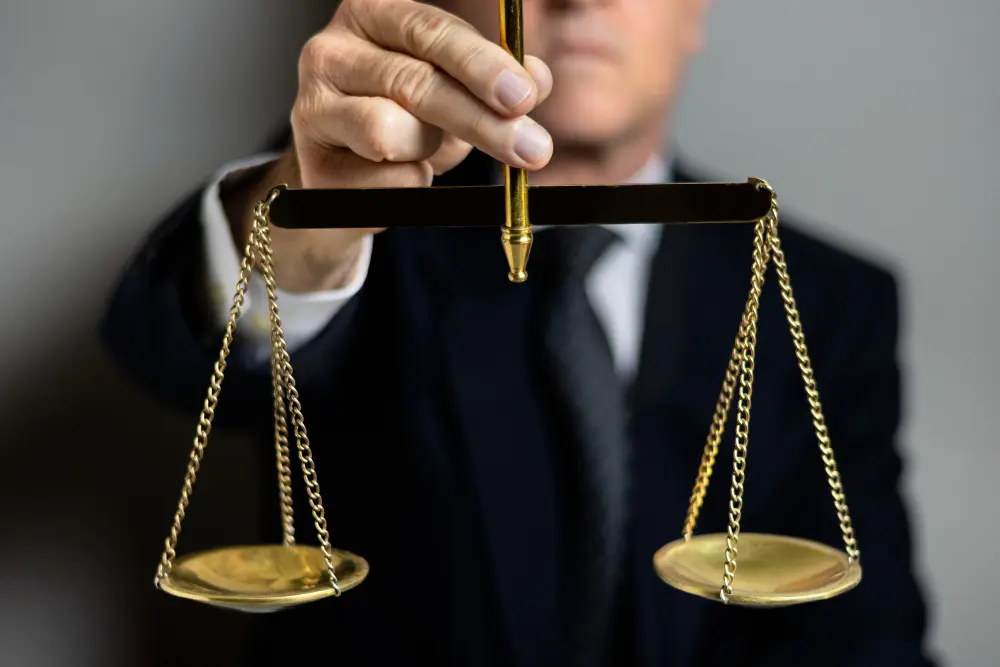
Accidents can be life-altering events, causing physical and emotional harm that may take time to heal. If you've been injured due to someone else's negligence, it's crucial to understand your legal rights and options for seeking personal injury lawyer compensation. In Texas, engaging a personal injury lawyer can significantly influence the outcome of your case, making it clear why personal injury lawyers are worth it. This comprehensive guide will delve into the reasons you need a personal injury lawyer and how they can support you throughout the legal journey.
Before we dive into the reasons why securing a personal injury lawyer is vital, let's first clarify what a personal injury case entails. It's a legal battle initiated by an injured individual aiming for compensation for their injuries. Whether the injury is from a car crash, a workplace incident, or a defective product, you might have a valid personal injury claim. The compensation in these cases often includes medical expenses, lost wages, and potential future earnings, with the personal injury settlement amount sometimes encompassing punitive damages to hold the negligent party accountable.
A pivotal role of a personal injury lawyer is serving as your advocate, especially during negotiations with insurance companies or the opposing parties. These companies have their own legal teams and adjusters focused on reducing the settlement offer. Having a seasoned personal injury lawyer by your side evens the odds and ensures your interests are safeguarded. They leverage their negotiation prowess and legal knowledge to secure the maximum insurance company compensation for your injuries.
Documenting the full extent of your pain, suffering, and the financial damages incurred is essential in a personal injury case. A proficient personal injury lawyer will assist you in collecting and documenting all necessary evidence to back your claim, which might include medical records, injury photos, witness statements, and expert opinions. This thorough compilation and presentation of evidence by your lawyer not only strengthens your case but also boosts the chances of receiving substantial monetary compensation.
Navigating the aftermath of an accident can be overwhelming, making it difficult to make objective decisions. Emotions may cloud your judgment, leaving you uncertain about the best steps forward. A personal injury lawyer offers an objective and informed perspective, evaluating the merits of your case, setting realistic expectations, and guiding you towards the most advantageous decisions.
Identifying the at-fault party responsible for your injuries isn't always straightforward. In some scenarios, multiple parties could be liable. Pinpointing all potentially responsible entities is key to maximizing your compensation. A personal injury lawyer possesses the necessary resources and expertise to conduct a comprehensive investigation, revealing layers of liability that might have been overlooked.
The legal landscape can be daunting, especially for those unfamiliar with its complexities. Understanding court customs, correctly filing documents, and adhering to deadlines involve navigating numerous intricacies. A personal injury lawyer, with their in-depth knowledge of the legal system, guides you through this process, ensuring compliance with all the statute of limitations and court fees, thus safeguarding your claim.
Constructing a compelling personal injury case often requires access to a suite of resources, including expert witnesses and private investigators. Personal injury lawyers have an established network of professionals capable of providing critical insights and testimony to bolster your claim. Leveraging these resources, your lawyer enhances your case, improving the prospects of a favorable verdict, while also managing expert witness fees effectively.
In personal injury litigation, timing and adherence to proper procedures are critical. Missing deadlines or mishandling necessary documents can adversely affect your case's outcome. A personal injury lawyer meticulously monitors all timelines and procedures, ensuring accurate and timely filings. This diligent oversight minimizes the risk of procedural mistakes that could compromise your claim.
Occasionally, the evidence put forth by the defendant may be dubious or unreliable. Your personal injury lawyer will rigorously assess the evidence from the opposing party, pinpointing any discrepancies or weaknesses. Utilizing their legal acumen, they challenge questionable evidence, thereby fortifying your case.
Medical expenses can quickly accumulate after an accident, adding additional stress to an already challenging situation. A personal injury lawyer can guide you through the process of managing and negotiating medical bills. They will work to ensure that your settlement includes compensation for all past and future medical expenses, preventing you from shouldering the financial burden on your own.
Studies have consistently shown that individuals who hire a personal injury lawyer tend to receive higher compensation than those who handle their claims alone, especially under a contingency fee agreement. Personal injury lawyers understand how to accurately value your case and will fight for the maximum compensation you deserve. Their experience and knowledge of the legal system allow them to effectively negotiate with insurance companies and opposing parties, increasing the potential settlement or verdict amount, often without upfront costs thanks to contingency fees.
Navigating the legal process can be overwhelming, especially if you're dealing with injuries and recovery. A personal injury lawyer will guide you through every step, from negotiation and mediation to trial, should it be necessary. They will handle all legal aspects of your case, allowing you to focus on your recovery and well-being.
Handling a personal injury case requires a significant investment of time and effort. By hiring a personal injury lawyer, you are entrusting your case to a professional who has the expertise and resources to handle it effectively, including managing litigation costs. They will dedicate their time and energy to your case, ensuring that all necessary tasks are completed efficiently.
When it comes to personal injury cases in Texas, hiring a personal injury lawyer is essential. They will serve as your advocate, fighting for your rights and seeking the compensation you deserve. From negotiating with insurance companies to guiding you through the legal process, their expertise and knowledge will significantly increase your chances of a successful outcome. If you've been injured due to someone else's negligence, don't hesitate to seek the assistance of a qualified personal injury lawyer. Contact The Martinez Law Firm, your trusted personal injury lawyer in Austin, Texas, today for a free consultation at (512) 444-0025. We proudly serve accident victims in Austin, Texas, and the surrounding areas, including Buda, Kyle, Bastrop, San Marcos, Pflugerville, and Round Rock.
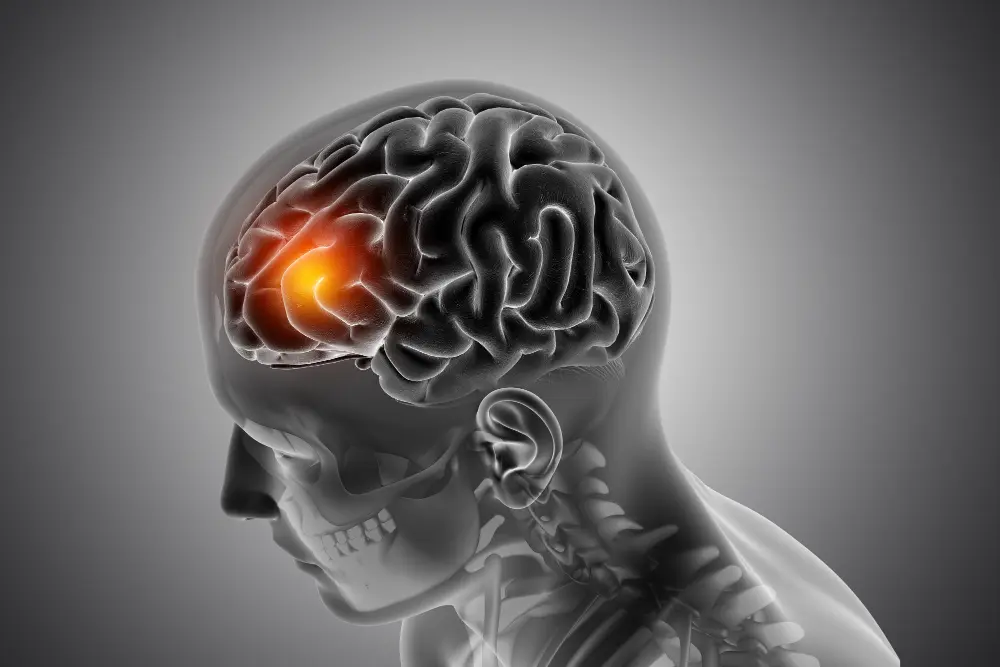
Accidents and unfortunate events often result in injuries that may initially appear trivial but can conceal serious health concerns. Among these, a concussion is frequently dismissed as a mere inconvenience, yet it is, in fact, a significant form of Traumatic Brain Injury (TBI). Such head injuries warrant careful attention due to their potential long-term effects.
Considering the potential severity of a concussion and its possible repercussions, securing the expertise of an attorney personal injury lawyer is imperative, especially when the brain injury stems from another party's negligence. These legal professionals are adept at navigating the complexities of seeking compensation for such injuries.
A concussion, a type of TBI, is triggered by a blow to the head or a bodily impact that causes the head to move abruptly. This violent motion can lead to the brain jostling within the skull, precipitating chemical changes and potentially causing stretching and damage to brain cells, which underscores the seriousness of brain injuries.
Often dubbed an 'invisible injury', the symptoms of a traumatic brain injury may not be immediately evident, yet the potential severity of its impact should not be underestimated. The absence of visible signs does not negate the critical nature of such injuries.
Dispelling common misconceptions, concussions are not simply 'bumps on the head' but rather serious brain injuries with lasting consequences. The brain's susceptibility to injury means that even a mild concussion can significantly alter an individual's feelings, behavior, and cognitive functions.
In the United States, nearly three million individuals are compelled to visit the emergency room each year for traumatic brain injuries. A considerable number of these cases involve traumatic brain injury lawyers to address the serious consequences and legal aspects that follow.
The symptoms of a concussion can span a broad spectrum, influenced by the severity of the injury and the person's unique physiology. Common symptoms include headaches, confusion, and dizziness, highlighting the need for immediate and thorough medical evaluation.
Experiencing these symptoms can lead not only to medical bills but also to enduring pain and suffering, both of which can be compensated for with the guidance of an attorney personal injury lawyer.
Should you experience a blow to the head or a sudden jolt that results in any of the aforementioned symptoms, it's crucial to seek immediate medical attention. A concussion might trigger cognitive deficiencies that, without prompt care, could evolve into serious complications.
Suffering a concussion as a result of another's negligence or intentional harm could provide a basis for a personal injury lawsuit. The expertise of an attorney personal injury lawyer is pivotal in such instances to aid you in your quest to recover damages, thereby compensating for your losses.
These damages could include:
On occasion, punitive damages are imposed to reprimand the liable party for their egregious or negligent conduct, serving as a financial deterrent against such behavior.
The Martinez Law Firm stands out as a premier personal injury law firm in Austin, Texas, renowned for securing optimal outcomes for their clients. Residents of Austin and nearby areas such as Buda, Kyle, Bastrop, San Marcos, Pflugerville, and Round Rock can contact The Martinez Law Firm at (512) 444-0025 to take advantage of a free case evaluation.
The potential severity of a concussion should never be underestimated. If you've sustained such an injury due to another's carelessness, it's advisable to enlist the services of an attorney personal injury lawyer who can navigate the legal process and assist you to secure the compensation you rightfully deserve.

In Texas, reckless driving is not just a minor infraction but a serious offense that can lead to significant legal consequences, including the need for a skilled texas car accident lawyer. Understanding the laws and penalties associated with reckless driving is crucial for your legal rights and the safety of all road users. This article delves into the actions that constitute reckless driving in Texas, its legal definition, and the potential penalties that may necessitate the expertise of a personal injury attorney.
Under Section 6.03 of the Texas Penal Code, reckless driving is characterized as the willful disregard for a significant and unjustifiable risk, a definition that underscores the gravity of such actions on Texas roadways. It's the act of consciously ignoring potential consequences and the risks associated with them, proceeding with such behavior despite knowing better.
Engaging in reckless driving is to endanger the lives of others, deviating significantly from the level of care a reasonable person would uphold under similar circumstances. Such behavior can infringe upon the legal rights of those affected, highlighting the importance of understanding what constitutes reckless driving.
The Texas Department of Transportation takes a firm stance against reckless driving, as outlined in Section 545.401 of the Texas Transportation Code. It's defined as the operation of a vehicle with a willful disregard for the safety of others or property, often involving a blatant disrespect for roadways regulations and a conscious decision to drive in a way that significantly increases the risk of harm.
In Texas, being convicted of reckless driving, a misdemeanor offense, can result in harsh legal consequences such as fines, imprisonment, or both. The extent of these penalties often hinges on the incident's specifics and any prior offenses, underlining the seriousness of reckless driving in the eyes of the law.
Reckless driving stands apart from other traffic violations in Texas due to its serious nature and the potential harm it can cause. The law serves as a deterrent against dangerous driving behaviors, aiming to uphold the safety of all individuals on the road and prevent the need for intervention by a texas car accident lawyer.
In Texas, behaviors that can lead to charges of reckless driving include a range of actions while behind the wheel. These traffic violations are taken seriously and can result in being charged with a reckless driving offense, emphasizing the need for drivers to adhere to safe driving practices.
While it's crucial to recognize that not every instance of distracted driving qualifies as reckless driving, the latter is characterized by a willful disregard for the safety of others, often involving distracted driving behaviors.
In Texas, reckless driving is deemed a misdemeanor offense, with legal consequences varying based on the incident's specifics. Penalties for this offense can range from fines to incarceration, reflecting the seriousness of the charge.
Repeat offenders may face harsher repercussions, such as license suspension, and those with a history of reckless driving may be labeled as 'habitual violators'—a term reserved for individuals with four or more convictions from separate incidents within a year or seven within two years.
The legal consequences for reckless driving in Texas can intensify depending on the offense's nature. Texas misdemeanors are sorted into Class A, B, or C, with Class A being the most severe and Class C the least, each carrying different levels of penalties.
A motorist exhibiting reckless driving that endangers others, such as evading a police officer or racing on a highway, may be charged with a Class A misdemeanor. This level of offense can lead to serious legal consequences, including a fine of up to $4,000 and a jail term of up to one year.
Typically, evading a police officer constitutes a Class B misdemeanor in the context of reckless driving. Those convicted of a Class B misdemeanor could incur a fine of up to $2,000 and face up to 180 days in prison.
Under certain conditions, a motorist may face a Class C misdemeanor for reckless driving, which can result in a fine of up to $500, although it does not warrant incarceration.
Confronted with reckless driving charges in Texas, it's imperative to consult an experienced Personal Injury attorney. Such a legal expert can offer invaluable legal advice, guidance, and representation to navigate the complexities of your case.
A personal injury attorney will meticulously examine the details of your case, scrutinize the reckless driving charges, and craft a robust legal defense strategy tailored to your unique circumstances. They're also equipped to negotiate with prosecutors and fervently defend your rights and interests in the courtroom.
Navigating the personal injury justice system can be daunting, yet the aid of a seasoned personal injury attorney can markedly enhance the prospects of your case. This legal ally is pivotal in demystifying the process, presenting your options, and offering steadfast advice and support, as well as scrutinizing the evidence, preparing testimonies, and exploring mitigating factors.
Reckless driving in Texas is deemed a grave infraction with serious legal repercussions. Comprehending the intricacies of reckless driving, adhering to traffic laws, and cultivating safe driving habits are essential to uphold your safety and that of fellow road users.
In the event of reckless driving charges, the expertise of a proficient personal injury attorney is crucial. Their adept legal guidance and representation are key to effectively managing the legal process and safeguarding your rights. Given the profound implications of reckless driving on your life, it's vital to approach the charges with gravity and secure professional assistance.
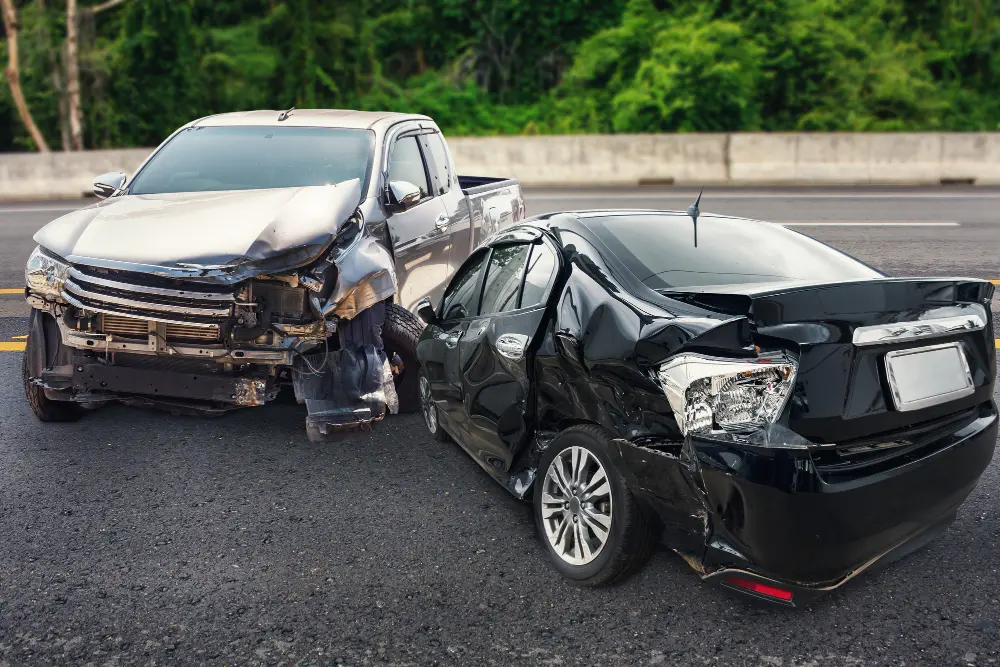
Auto accidents on the road can occur unexpectedly and affect anyone. With millions of drivers navigating the roads daily, the likelihood of being involved in a car accident, including serious car accidents, is regrettably high. It's crucial to distinguish between minor car accidents and major car accidents, as they can have varying consequences for car accident claims, personal injury issues, and property damage. In this article, we will delve into the differences between these types of accidents and offer guidance on the appropriate actions to take in each scenario.
Minor car crashes are often marked by low impact, superficial damage to vehicles, and relatively low speeds. These incidents might include a minor fender bender, slight scratches or dents, or a cracked windshield. Despite the seemingly negligible damage, even these minor accidents can lead to personal injuries such as whiplash, bruises, and muscle aches, and should be approached with caution.
There are several key indicators that can help determine whether an accident is minor:
Even if a minor accident seems inconsequential, it's essential to follow certain steps to safeguard your rights and ensure your well-being, which could include seeking compensation for medical bills and lost wages.
Major car accidents are characterized by high impact collisions, extensive damage to vehicles, and typically involve higher speeds. These accidents can lead to severe injuries, such as traumatic brain injuries and spinal cord injuries, or even life-threatening conditions and long-term disabilities. Notable examples of major car accidents include multi-car pileups, high-speed crashes, or incidents resulting in substantial vehicle damage, similar to motorcycle accidents.
Here are some indicators that can help identify a major car accident:
In the aftermath of a major car accident, taking immediate steps to protect yourself and your legal rights is imperative. This may involve seeking compensation for medical bills and consulting with injury attorneys or auto accident lawyers to ensure you receive the support you need.
No matter if you've been in a minor or a major car accident, comprehending your rights and obtaining legal assistance when necessary is vital. Engaging with a skilled car accident attorney can provide invaluable help in navigating the intricate legal system and safeguarding your personal interests.
For those injured in a car accident in Austin, Texas, the Martinez Law Firm stands ready to offer expert legal representation. Their commitment to client success and a strong track record make them the auto accident lawyers near me you can trust. They are dedicated to fighting for your rights and securing the compensation you are entitled to. Reach out to the Martinez Law Firm today at (512) 444-0025 for a complimentary case evaluation.
Remember, accidents can happen to anyone, and it's essential to understand the differences between minor and major accidents, as well as the steps to take after each. By being informed and seeking the right legal assistance, you can protect yourself and ensure that you receive the compensation you are entitled to for any damages after a car accident. Stay safe on the roads and drive responsibly, keeping in mind that if a trial is necessary, being prepared can make all the difference.

When you've been injured and are wondering 'why is my settlement taking so long', it can be frustrating when your personal injury case takes longer than expected to settle. While various factors contribute to the delay, understanding these reasons can help alleviate some of your concerns. In this article, we will explore common reasons why personal injury cases may take longer to settle and provide insights into the process.
One significant factor that can prolong the settlement process is ongoing medical treatment. Before reaching a settlement, it's crucial to have a comprehensive understanding of your medical condition and prognosis. Your attorney will need to wait for your medical treatment to be completed to accurately assess the full extent of your damages. This includes evaluating your medical bills, lost wages, and any permanent damage you may have suffered as a result of the injury. It is essential to reach Maximum Medical Improvement (MMI), where your condition stabilizes and further recovery is unlikely. This ensures a more accurate assessment of your damages and helps maximize your recovery.
Another common reason for delays in settling personal injury cases is court backlogs and delay tactics. When the court dockets are crowded with numerous cases, it can significantly slow down the progress of your case. Important hearings and settlement conferences may be pushed further into the future as the court system works through its caseload. Additionally, serving the defendant with the necessary legal documents can also contribute to delays, especially if they are attempting to avoid the legal process. Proper legal procedure requires official notification of the legal proceedings against them, and locating and serving individuals can take time and effort.
Insurance companies often employ stalling insurance tactics to prolong the settlement process and minimize payouts. Deliberate stalling techniques in responding to claims are a common strategy used to create frustration and financial strain for the claimant. By taking their time in reviewing and processing claims, insurance companies aim to force claimants into accepting lower settlement offers out of desperation. Additionally, insurers may request extensive documentation and information during the discovery stage, causing further delays as claimants gather the necessary information. Engaging in repeated negotiations and counteroffers is another tactic used to prolong the negotiation phase, hoping that claimants will settle for a reduced amount to conclude the process.
Some cases inherently take longer to settle due to their complexity, affecting settlement negotiations. Multiple parties involved, technical elements, document-intensive cases, and jurisdictional issues can all contribute to delays. Coordinating among multiple parties with distinct interests and legal positions may prolong proceedings. Cases involving technical or scientific evidence often require expert analysis, which can be time-consuming. Document-intensive cases require meticulous attention to detail, and cases spanning multiple jurisdictions present additional challenges. These complexities can result in a longer settlement process as each aspect is carefully addressed.
The duration of a personal injury claim can vary significantly based on the factors mentioned above. Generally, personal injury cases can take anywhere from a few months to several years to settle. Accepting a smaller settlement amount or being willing to proceed to trial can sometimes expedite the process. However, it's crucial to carefully evaluate any settlement offers and seek legal advice to ensure fair compensation. The statute of limitations also plays a role in determining the timeframe within which a lawsuit must be filed, as exceeding this timeframe can result in forfeiting the opportunity to seek compensation.
Having personal injury attorneys by your side can help navigate the complexities of your case and expedite the settlement process. They will work diligently to gather evidence, coordinate with healthcare providers, and negotiate with insurance companies on your behalf. A skilled attorney understands the tactics employed by insurance companies and can counter them effectively. They will ensure that your rights are protected and that you receive the fair and timely compensation you deserve.
Contact The Martinez Law Firm - Your Personal Injury Lawyer in Austin, Texas
If you're searching for a proficient injury lawyer in Austin, Texas, or surrounding cities, The Martinez Law Firm stands ready to assist. Our team, known for securing the best results for accident victims, is committed to advocating for your rights and ensuring you receive maximum compensation. To benefit from our expertise, call us today at (512) 444-0025 to schedule your free consultation. We take pride in representing clients in Austin, Texas, and nearby areas including Buda, Kyle, Bastrop, San Marcos, Pflugerville, and Round Rock.
Remember, every personal injury case is unique, and while delays can be frustrating, having a skilled attorney on your side can help ensure a favorable outcome.
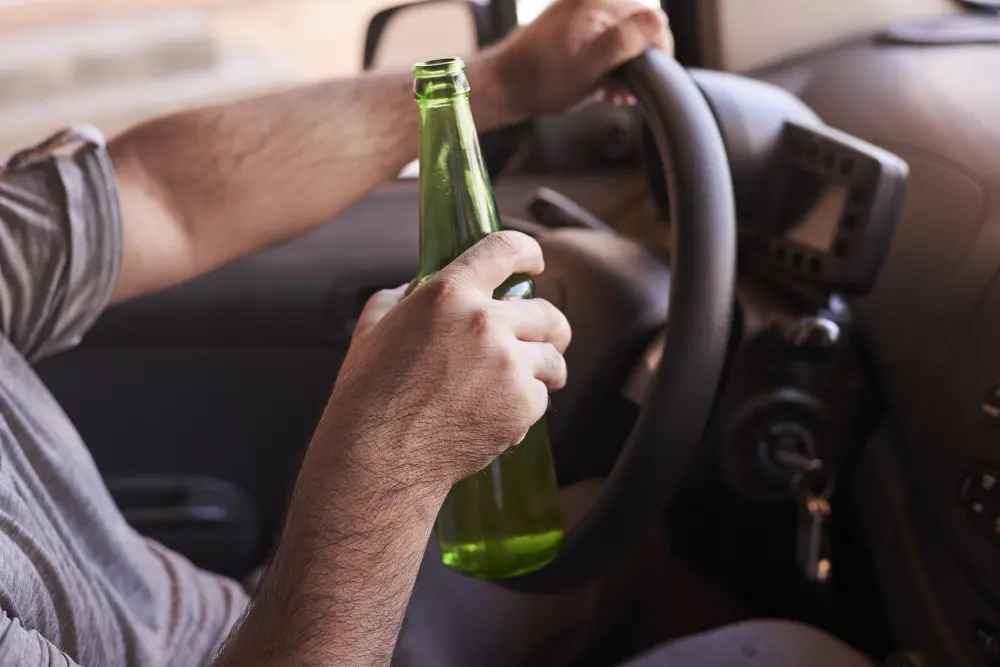
If you or someone you know has been involved in a drunk driving accident, understanding the average settlement for drunk driving accident cases is crucial. These incidents, often caused by drunk drivers, can lead to significant injuries and financial strains. While each case is unique, factors such as the severity of the injuries and the driver's level of intoxication can influence the settlement amount. This comprehensive guide will delve into the average settlement for a drunk driving accident, the factors that affect it, and the types of damages that may be compensated. Moreover, we'll highlight the importance of engaging a personal injury lawyer to assist you through the legal proceedings and to enhance your chances of a substantial recovery.
Drunk driving accidents, which occur when individuals operate vehicles under the influence of alcohol, pose serious risks to all road users. These accidents, synonymous with unpredictability and danger, can happen at any time and lead to severe injuries and significant property damage. The threat of a drunk driving accident looms large, making it a perilous issue for drivers and pedestrians alike.
The average settlement hit by drunk driver cases can be influenced by a variety of factors. It's important to consider these elements when estimating the potential value of your claim. While each situation is distinct, certain factors frequently play a pivotal role in determining the settlement amount in a drunk driving accident.
The severity of the injuries sustained, such as traumatic brain injury, is a critical element in determining the settlement amount for a drunk driving accident. More serious injuries often command higher settlements, reflecting the increased medical care and potential for long-term impact on the victim's life.
Assessing liability and determining who was at fault is essential in calculating the settlement amount for a drunk driving accident. Even when a drunk driver is involved, comparative negligence laws might attribute a portion of the fault to other parties, which is a key aspect of the legal strategy in personal injury cases.
In cases of extreme recklessness or intentional misconduct by the drunk driver, punitive damages may be awarded. These damages are intended to punish the offender and deter future similar conduct. The possibility and extent of punitive damages can differ based on the laws of the jurisdiction where the drunk driving accident occurred.
Economic damages encompass the financial losses suffered due to the accident, such as medical bills, rehabilitation expenses, lost income, property damage, and other quantifiable losses. The calculation of economic damages is generally based on the unique details of each drunk driving accident case.
Non-economic damages, such as pain and suffering hit by drunk driver, are intangible losses that cannot be easily quantified. These may include emotional distress, loss of enjoyment of life, and other subjective factors. Assigning a monetary value to these damages, including pain and suffering experienced after being hit by a drunk driver, can be challenging, but they are an essential part of the overall settlement amount.
The insurance coverage of the at-fault party and the victim's insurance coverage also play a pivotal role in determining the settlement amount. The available coverage limits and policy terms can significantly impact the amount of compensation that can be obtained, making insurance coverage a key factor in the settlement process.
When calculating a settlement for a drunk driving accident, there are three main types of damages that are typically considered: economic damages, non-economic damages, and punitive damages.
Economic damages, also known as special damages, encompass the financial losses incurred as a direct result of the accident. These may include medical expenses, rehabilitation costs, property damage, lost wages, and other quantifiable losses. Calculating economic damages requires gathering documentation and evidence of the actual expenses incurred.
Non-economic damages, which are subjective losses that cannot be easily quantified, include pain and suffering, emotional distress, loss of consortium, and loss of enjoyment of life. Assigning a monetary value to non-economic damages often necessitates the expertise of an experienced personal injury attorney.
Exemplary damages, also referred to as punitive damages, are intended to punish the at-fault party for their reckless behavior and deter others from engaging in similar conduct. These damages go beyond compensating the victim and are awarded in cases involving egregious misconduct or intentional harm.
Navigating the legal process following a drunk driving accident can be complex and overwhelming, especially while dealing with injuries and recovery. Hiring a skilled personal injury lawyer is crucial to ensure that your rights are protected, and you receive the full compensation you deserve. An experienced attorney can:
If you have been involved in a drunk driving accident in Austin, Texas, or the surrounding areas of Buda, Kyle, Bastrop, San Marcos, Pflugerville, and Round Rock, The Martinez Law Firm is here to help. As your trusted personal injury attorney, we offer a free consultation and have a proven track record of achieving the best results for our clients. Our dedicated team will fight tirelessly to ensure you receive fair compensation for your injuries, medical expenses, lost wages, and other damages.
Contact The Martinez Law Firm today at (512) 444-0025 to take advantage of our free case evaluation. Let our experienced attorneys guide you through the legal process and advocate for your rights. Don't hesitate to seek the legal representation you deserve.
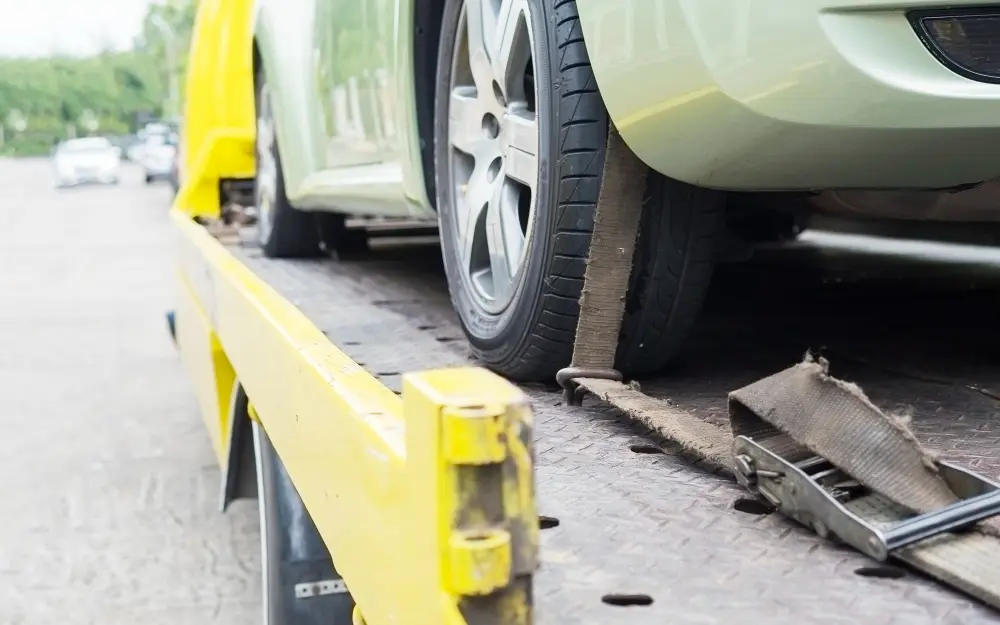
If you find yourself in a situation where your car needs to be towed, it can be a stressful experience. But what happens if your car is damaged while being towed? Who is responsible for the damages? In this article, we will delve into the liability of towing companies in Texas and guide you through the necessary steps if your car suffers harm during the towing process.
In Texas, towing companies are expected to handle your vehicle with care, but if towing a car damages it, the towing company damaged my car, they may be held accountable for not exercising 'due care.' This responsibility covers all aspects of the towing service, including the safe attachment of your vehicle to the tow truck, cautious driving in traffic, and the careful disconnection of your car, ensuring that tow trucks are not liable for damage.
It's essential to recognize that if you signed a damage waiver releasing the towing company from responsibility for vehicle damages, they might not be held liable. However, if a tow truck damages your car significantly, consulting with a tow lawyer can help determine the waiver's enforceability in small claims court.
A critical step in establishing towing damage liability is to document evidence of the damages. Before the tow truck driver gets to work, inspect your vehicle and note its condition. Take detailed photos from various angles, highlighting any pre-existing damage. These images will be pivotal if your car is damaged during tow, serving as indisputable proof of the vehicle's condition prior to the towing service.
Should you follow your vehicle to the tow yard or mechanic's shop, make sure to document the vehicle's condition before it is unhooked. Damage often occurs during the disconnection process, and having photographic evidence of the vehicle's state before and after the service can be compelling if your car is damaged by towing company.
Tow trucks can inflict a range of damages on your vehicle. Common issues include harm to the car bumper, which may occur if the tow truck's hook is not correctly positioned. Additionally, tire and windshield damage can happen if the tow truck inadvertently strikes your vehicle, and if a towing company damaged car surfaces with scratches or dents, it's often due to the tow truck driver's negligence.
If an accident happens while your vehicle is in transit, the towing company is typically held liable for any damages incurred to other vehicles involved. Regardless of whether your towed vehicle was the cause of the damage, the towing company must take responsibility. Moreover, in the event of a tow truck accident, it is usually straightforward to establish that the towing company is at fault.
Ideally, the tow truck company will be cooperative and willing to cover the damages to your vehicle. If they agree to do so, ensure you obtain a towing receipt and follow these steps:
If the tow truck company disputes the damages or refuses to cooperate, you have a few options: consider sending a demand letter or consulting with a tow truck accident lawyer to discuss your legal recourse.
Experiencing damage to your vehicle during the towing process can be frustrating and stressful. However, knowing your rights and asking yourself 'can I sue a towing company for damaging my car?' can help you resolve the matter smoothly. Reputable towing companies are likely to accept liability for damages they caused, especially when presented with strong evidence. Remember to document the incident, inform the relevant parties, and seek professional legal advice if necessary.
If you require assistance with a towing damage case in Texas, The Martinez Law Firm is here to help. Offering a free consultation, we are your dedicated accident attorney and car accident lawyer in Austin, Texas, with a proven track record of achieving the best results for our clients. Call us today at (512) 444-0025 for a free case evaluation. We proudly serve accident victims in Austin, Texas, as well as neighboring cities including Buda, Kyle, Bastrop, San Marcos, Pflugerville, and Round Rock.
Remember, when it comes to towing damage liability in Texas, you have rights, and we are here to protect them. Don't hesitate to reach out for the legal representation you deserve from a lawyer for towed car if a tow company damaged my car.






